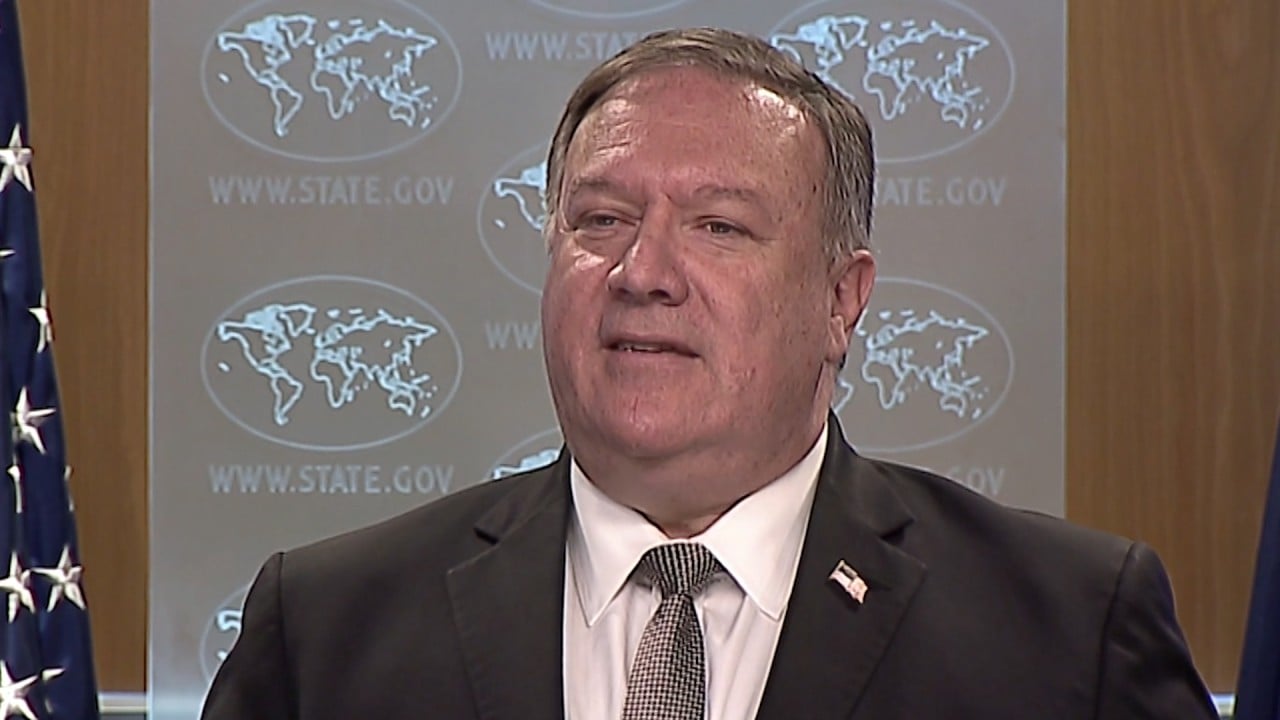
US squeeze on China’s apps, digital infrastructure could upend global internet, analysts say
- The US government’s ‘Clean Network’ programme aims to restrict the international expansion of Chinese apps, cloud services and undersea cable networks
- It could deal another blow to China’s tech sector amid the disruptions caused by the coronavirus pandemic and protracted trade war with the US
The Trump administration’s “Clean Network” programme threatens to further disrupt China’s technology industry, as the campaign seeks to restrict the international expansion of Chinese apps, cloud services and undersea cable networks.
The initiative, which the State Department said includes the commitment of more than 30 countries and territories, is likely to escalate the complex tech war between the world’s two largest economies, according to analysts.
“The negative effect of this programme is that it’s becoming harder to see a truly global vision of the internet and access without borders surviving this tech war,” said Paul Haswell, a partner who advises technology companies at international law firm Pinsent Masons. “It would seem that the object of the campaign is to remove Chinese technology from all aspects of US data transmission and processes. We’ll have to see if that is even possible in practice.”

01:04
Pompeo says US considering ban on TikTok and other Chinese apps, praises Google, Facebook, Twitter
Implementing this programme in the US and other markets could deal another blow to China’s tech sector amid disruptions caused by the coronavirus pandemic and Beijing’s protracted trade war with Washington.
On Wednesday, Pompeo reiterated the Trump administration’s impending action against TikTok, WeChat and other Chinese-owned apps by calling for the removal of these “untrusted Chinese apps” from US app stores.
It is absurd for the US to talk of a ‘Clean Network’ when it is covered in its own filth
Representatives from WeChat, Tencent and Kuaishou declined to comment on Thursday.
In the second quarter, the US was the second-largest app market in terms of downloads behind India, according to analytics firm Sensor Tower. In India, more Chinese apps have been taken down from local app stores there amid simmering tensions between the two countries after a violent border clash two months ago.
More Chinese apps removed from India’s app stores amid border dispute backlash
Targeting technology-related companies has become a key part of the tech cold war, as governments cut access and protect local user data,” said Neil Shah, partner and vice-president at Counterpoint Research.
Google scraps cloud initiative in China and other ‘sensitive markets
Tencent and Alibaba, the parent company of the South China Morning Post, declined to comment on the US programme on Thursday. Baidu did not immediately reply to a request for comment.
“This latest ramp-up in US-China tensions poses a potential barrier for the Chinese cloud companies to expand globally,” said Mathew Ball, Canalys’ chief analyst for global infrastructure, cloud and cybersecurity. He added, however, that this campaign “will be challenging to enforce outside the US”.
Pompeo said the US campaign is also focused on keeping the undersea cables that links the country to the global internet safe from intelligence-gathering by China.



